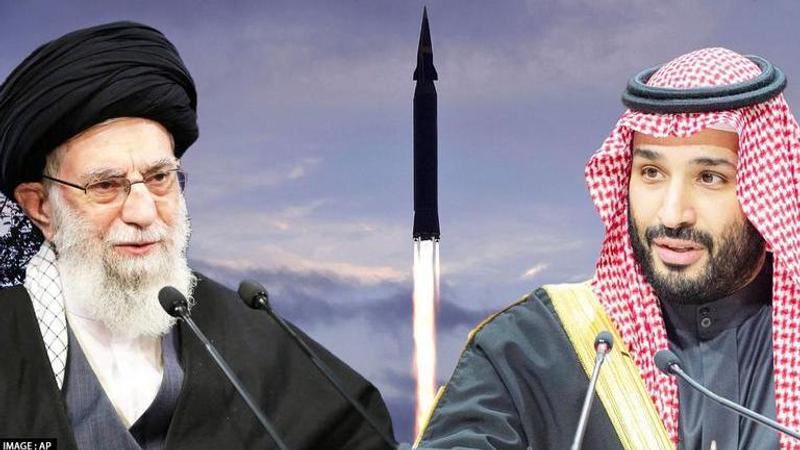Published 15:00 IST, December 12th 2022
Saudi Arabia says 'all bets are off' if Iran acquires nuclear weapons
"If Iran gets nuclear weapons then all bets are off," said Saudi Arabia's foreign minister. Israel's Benjamin Netanyahu has expressed similar concerns.

Saudi Arabia's foreign minister, Prince Faisal bin Farhan Al-Saud, whilst speaking at the World Policy Conference in Abu Dhabi said that if Iran gets nuclear weapons then "all bets are off". His statements come after Benjamin Netanyahu's recent statement during an interview with Andrew Ross Sorkin of The NY Times, in which Netanyahu said that Iran's nuclear weapons programme poses an existential risk to Israel. Saudi Arabia's foreign minister said that Riyadh supports efforts to revive the Iran deal, whilst adding that it is a "starting point and not an end point".
Benjamin Netanyahu, and Israel in general, are critical of the deal. During the interview, Netanyahu said that the deal paves Iran's path to nuclear weapons development with gold. The longest-serving Prime Minister of Israel reasoned that only fear of force will deter Iran from pursuing nuclear weapons. Although Israel and Saudi Arabia don't have formal relations with each other, behind the doors, the duo share intelligence with each other. The national interests of both nations converge as they consider Iran a threat. Saudi Arabia is pursuing closer relations with Israel to counter the perceived threat of Iran in the region.
Roots of conflict between Iran and Saudi Arabia
The roots of the conflict between Iran and Saudi Arabia can be traced back to the origins of the two nations and their respective religions. Iran is a predominantly Shia Muslim country, while Saudi Arabia is a predominantly Sunni Muslim country. Shia and Sunni are the two largest branches of Islam, with the majority of Muslims worldwide being Sunni. The split between the two branches dates back to the death of the Prophet Muhammad in the 7th century. The Shia believe that Prophet Muhammad's descendants, through his cousin and son-in-law Ali, should have been the rightful leaders of the Muslim community, while the Sunni believe that the first four caliphs who succeeded Muhammad were the rightful leaders. This religious divide has been a source of tension between the two countries for centuries.
Saudi Arabia and Iran have a long and complicated history. The two countries are located in the Middle East and are both major players in the region. In recent years, their relationship has been marked by tensions and hostilities, but it was not always this way. The Pahlavi dynasty, which ruled Iran from 1925 to 1979, was characterized by its close relationship with the West. The Shah of Iran, Mohammad Reza Pahlavi, was a strong ally of the United States and other Western powers. This put him at odds with many in the Iranian population, who were dissatisfied with the Shah's autocratic rule and his policies of modernization and westernization. Meanwhile, in Saudi Arabia, the ruling Al Saud family was also closely allied with the West. The Saudi royal family had a long-standing relationship with the United States, and the two countries cooperated closely on matters of oil and regional security.
The Iranian Revolution of 1979, which toppled the Pahlavi dynasty and ushered in the Islamic Republic of Iran, changed the dynamic between the two countries. The new regime, led by Ayatollah Ruhollah Khomeini, was fiercely anti-West and opposed to the kind of modernization and westernization that the Shah had pursued. This put Iran at odds with Saudi Arabia and its Western allies. The relationship between Iran and Saudi Arabia deteriorated further after the Iran-Iraq War of the 1980s. The two countries supported opposite sides in the conflict, with Saudi Arabia backing Iraq and Iran supporting the Iraqi Shia rebels. This further exacerbated the tensions between the two countries.
In current times, the conflict has been fueled by a number of factors, including political, economic, and regional rivalries. One major source of tension is the ongoing conflict in Syria. Iran has supported the Syrian government, led by President Bashar al-Assad, in the country's civil war, while Saudi Arabia has supported some of the rebel groups fighting against Assad. This has led to proxy battles between the two countries in Syria, with each side backing different factions in the conflict.
Another source of tension is the competition between the two countries for regional dominance. Both Iran and Saudi Arabia see themselves as leaders of the Islamic world and have sought to expand their influence in the Middle East. This has led to a number of conflicts, including in Yemen, where the two countries are backing different sides in the ongoing civil war. Additionally, the two countries have different approaches to a number of issues, including their relationships with the United States and their policies toward Israel. Iran has a contentious relationship with the US and does not recognize Israel as a state, while Saudi Arabia has closer ties with the US and has taken steps toward recognizing Israel.
Updated 15:00 IST, December 12th 2022




